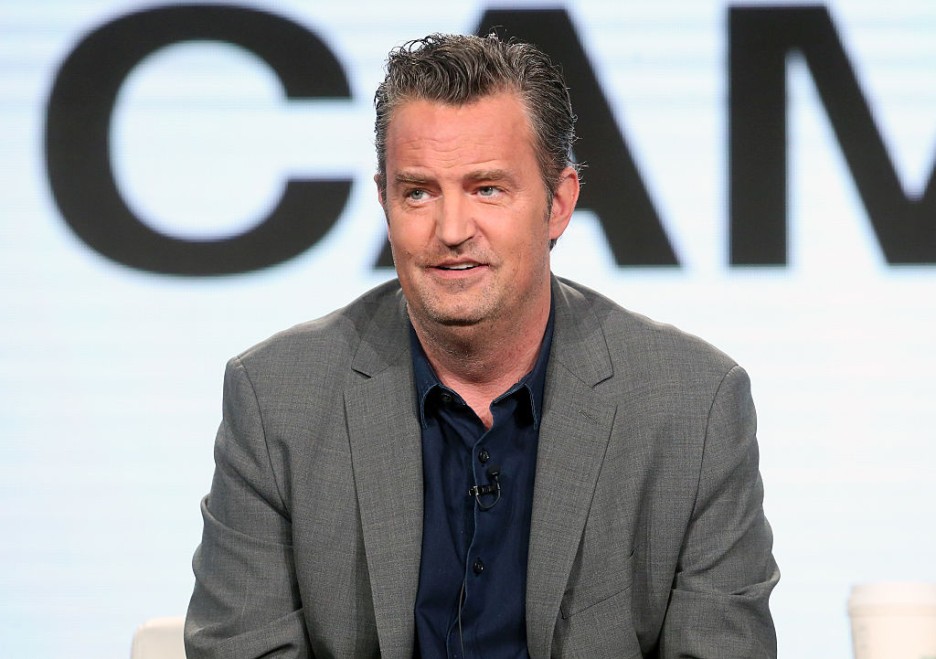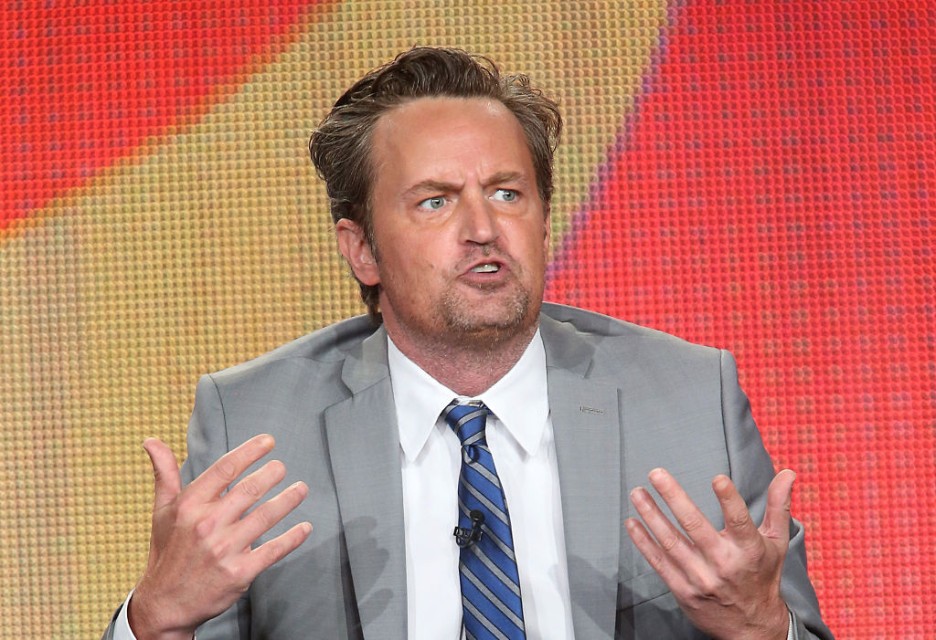Matthew Perry's Death Same With Michael Jackson's? Here's Why Their Doctors Were Charged

The investigation into Matthew Perry's death has led to charges against two doctors and three others, echoing the case surrounding Michael Jackson's 2009 passing.
On Thursday, the Department of Justice announced in a news release that five individuals were charged with distributing to Perry the ketamine that led to his October 2023 accidental drug overdose death.
During a news conference, U.S. Attorney Martin Estrada said that Dr. Salvador Plasencia, Dr. Mark Chavez and the three other defendants "knew what they were doing was risking great danger to" the actor but "were more interested in profiting off of Mr. Perry than caring for his well being," NBC News reported.
Perry's assistant Kenneth Iwamasa, the actor's acquaintance Erik Fleming and Jasveen Sangha, an underground seller known as "The Ketamine Queen," were also charged.

In late September 2023, Dr. Plasencia, of Santa Monica, learned that Perry wanted to obtain ketamine -- an anesthetic with psychedelic properties -- and reached out to Dr. Chavez, of San Diego, to get a supply of the drug to sell to the "Friends" actor, according to an 18-count superseding indictment.
According to the indictment, the two doctors discussed how much to charge Perry for the ketamine, with Plasencia texting Chavez, "I wonder how much this moron will pay" and "Lets [sic] find out."
Plasencia sold the ketamine he obtained from Chavez to Perry and his assistant and taught Iwamasa how to inject his boss with it despite knowing that the man had no medical training.
The physician also injected Perry with ketamine himself several times but did not properly monitor the actor after doing so, prosecutors said.
The administration of ketamine -- which has become popular as a treatment for depression and other mental health issues -- comes with risks that require patients to be monitored by a medical professional, the indictment stated.

Prosecutors alleged that Plasencia and Chavez "conspired" about the inventory, price and availability of ketamine to sell to the late actor and his assistant.
Chavez was also accused of lying to wholesale ketamine distributors to obtain the 20 vials of the drug that he and Plasencia sold to Perry for $55,000 in cash.
Perry's case echoes that of Jackson, who also died as a result of the effects of an anesthetic 13 years ago.
Jackson's personal physician, Dr. Conrad Murray, was convicted in 2011 of involuntary manslaughter for providing the singer with a fatal dose of powerful drugs that led to his June 2009 death.
Jackson died due to acute propofol intoxication, exacerbated by the sedative lorazepam. Midazolam, diazepam (Valium), lidocaine and ephedrine were also detected in his system at the time of his passing.

The late King of Pop allegedly asked Murray to give him propofol to treat his insomnia, and the doctor did so every night for the two months leading up to the singer's death.
Prosecutors argued at the time that Murray put his patient to sleep in "a reckless, obscene manner" by using the surgical anesthetic propofol without proper monitoring equipment and devices to help Jackson breathe under heavy anesthesia, CNN reported.
In Perry's case, Dr. Chavez, Iwamasa and Fleming have pleaded guilty to their respective charges.
Fleming -- who obtained 50 vials of ketamine from Sangha and sold them to Perry's assistant -- pleaded guilty to one count of conspiracy to distribute ketamine and one count of distribution of ketamine resulting in death. He faces up to 25 years in prison, The New York Times reported.
Iwamasa pleaded guilty to one count of conspiracy to distribute ketamine causing death, while Chavez admitted to one count of conspiracy to distribute ketamine. The former faces up to 15 years in prison, while the latter faces up to 10 years.
Plasencia and Sangha -- who were charged with one count of conspiracy to distribute ketamine -- were arrested and jailed Thursday. They both pleaded not guilty.
Sangha was also charged with several other drug-related offenses.
Their trials are scheduled for October.
© 2025 Enstarz.com All rights reserved. Do not reproduce without permission.





